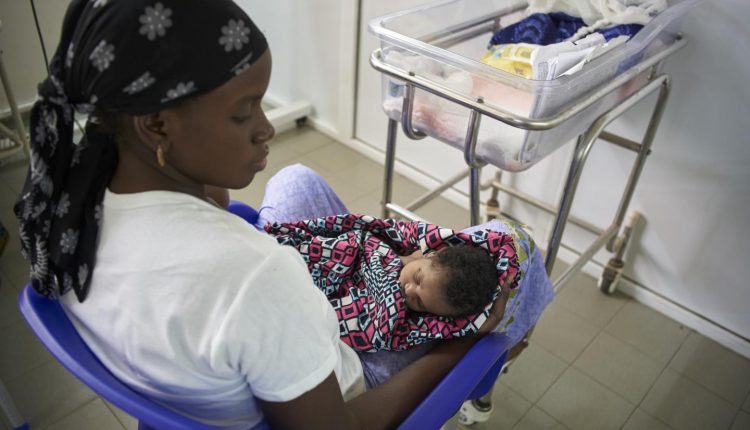
Are you pregnant? Yale study explains pregnancy effects of Covid-19 vaccine
Being pregnant makes women look at the Covid-19 vaccine with some concern. This comes at a time when infodemia, the propagation of fake news in science, is at its most widespread
Covid-19 and infodemia: only one third of pregnant women have completed the vaccination cycle
Pregnant women are, first and foremost, concerned with the health of their unborn child, and some have had reservations about getting the COVID-19 vaccine—only about a third of pregnant women are fully vaccinated.
But a new study of more than 46,000 pregnant women shows that COVID-19 vaccination does not increase the risk of delivering a premature baby or of having a baby born smaller than expected—both of which are linked to higher chances of infant death and disability.
CHILD HEALTH: LEARN MORE ABOUT MEDICHILD BY VISITING THE BOOTH AT EMERGENCY EXPO
Being pregnant and vaccinating against Covid-19: the Yale study
The study, which adds to existing evidence that COVID-19 vaccination during pregnancy is safe, was published on Jan. 4, 2022, by the Centers for Disease Control and Prevention (CDC); Heather Lipkind, MD, a Yale Medicine obstetrician-gynecologist and high-risk pregnancy specialist, was its lead author.
One of the first studies to examine the health of babies born to women vaccinated during pregnancy, it comes at a crucial time, when the Omicron variant is surging.
Vaccination is key, Dr. Lipkind says, because pregnant women with COVID-19 are at increased risk for severe illness and complications during pregnancy, including preterm birth.
“Women have been reluctant to receive the vaccine due to limited information about vaccine safety,” Dr. Lipkind says.
“However, now, given the increasing rates of Omicron, protection provided by the vaccine is more important than ever.
Because Omicron is so contagious, the typical measures we were taking before aren’t necessarily working.
And if you are pregnant, it may now be harder to keep yourself from getting sick with COVID.”
Women with symptomatic COVID-19 during pregnancy are twice as likely to need admission to the hospital intensive care unit and invasive ventilation compared to nonpregnant women with symptomatic infections.
And they are 70% more likely to die than nonpregnant women with COVID-19.
Additionally, earlier studies have shown that women vaccinated during pregnancy do not face a higher risk of miscarriage compared to unvaccinated women.
Details from the study on pregnant women and COVID vaccines
This latest study examined 46,079 pregnancies that resulted in a live birth. It included 10,064 pregnant women who received one or more doses of a COVID-19 vaccine between Dec. 15, 2020, and July 22, 2021.
Most of the women received Pfizer-BioNTech or Moderna vaccines, and the majority were vaccinated during their second or third trimester.
A total of 6.6% of babies from the study were born prematurely (before 37 weeks) and 8.2% were born small for their gestational age (referred to as SGA), weighing less than 5 pounds and 8 ounces.
There was no difference in the rate of these occurrences between mothers who had been vaccinated while pregnant and those who were not, and the rates were consistent with what is expected in the population.
Dr. Lipkind and her team plan to do follow-up research on infants born to women who have been vaccinated.
Why vaccination in pregnancy is important for pregnant women
Given that women infected with the coronavirus appear to be at higher risk of preterm birth, vaccination is key to avoiding the various developmental issues that can accompany a baby born too soon.
“Delivering early is associated with an increased risk of developmental delay for the baby,” Dr. Lipkind says. “We also don’t know the long-term effects of COVID on babies if a mother passes the virus to her child.”
Meanwhile, one study on mRNA vaccines has shown that pregnant vaccinated women pass protective antibodies to their babies
While Omicron is still too new to be able to draw conclusions on its severity in pregnant women, Dr. Lipkind says CDC data—and her own anecdotal experience—demonstrates that with previous variants, pregnant, unvaccinated women were getting much sicker and showing an increased risk of death and ICU admission compared to vaccinated pregnant women.
Still, Dr. Lipkind says she empathizes with pregnant women who are navigating these difficult decisions.
“It’s a scary time to be pregnant, but I encourage women who are pregnant to get vaccinated,” says Dr. Lipkind.
Read Also:
Italy / Third Dose Of Vaccine In Pregnancy? The Indications Of The Istituto Superiore Di Sanità



